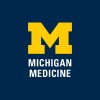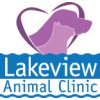Are you applying to the internship?
Job Description
About the company and job description
This program is offered by OCHIN Workforce Development.
Training Program Description
This is a grant-funded training program, *not• an employment opportunity. Employment is not guaranteed at the completion of the program. The program trains individuals to become Community Health Workers (CHWs), serving as a bridge between healthcare, social services, and community members in need. Upon completion, participants receive credit hours to apply for CHW licensure in Oregon. The program combines online classroom training with on-site, hands-on internship/externship training. Selection for participation is *not• guaranteed and is subject to HRSA enrollment guidelines.
Training Program Eligibility Requirements
• Must be 18 years or older.
• Must NOT have prior professional or volunteer experience in healthcare/community health work (no healthcare licenses/certifications).
• Must live within 30-45 minutes of the Service Site location in Beaverton, OR.
• Must have a high school diploma or GED.
• Must be a U.S. Citizen or Permanent Resident/Green Card holder.
• Familiarity with Microsoft Office Suite (Word, Excel, PowerPoint) is beneficial.
• Must pass a national criminal background check.
Training Program Details
• Temporary training program lasting approximately 550 hours.
• Approximately 150 hours of didactic learning and 400 hours of on-site internship.
• Monday-Friday, 8 AM – 5 PM participation is required for the duration of the program.
• Total Stipend: $7,500, distributed over approximately 16 weeks, paid semi-monthly.
Training Program Covers
• History of Community Health Workers
• Introduction to Community Health Workers
• Health Promotion & Disease Prevention
• Health Literacy as a Barrier
• Telehealth Literacy
• Broad Determinants of Health
• Health Disparities
• Cultural Health Beliefs
• Communication Techniques
• Managing Referrals
• Healthcare Financing
• Legal Advocacy
• Documentation
• Safety Concerns
• Screening for Social Risk Factors
• EHR Systems & Population Health Management
• Technology in Community Care
• Social Service Resource Locators.
Training Program Benefits
• Play a pivotal role in advancing health equity and strengthening the circle of community care.
• Learn to advocate on behalf of patients and their families—facilitating timely access to key community resources including information, insurance, food, housing, and more.
• Special emphasis on working in community-based settings—including communication barriers; health model characteristics; and impact of culture and socioeconomic status on health.
CHW Training Program Description:
Community health workers (CHWs) play a vital and unique role in linking diverse and underserved populations to health and social service systems. Community Health Workers will primarily be working out in the community with specific target populations. CHW’s will work closely with medical providers, primary care teams, and other agencies to improve patient care and outcomes. Community health workers (CHWs) have a close understanding of the community they serve. This trusting relationship enables them to serve as a liaison/link/intermediary between health/social services and the community to facilitate access to services and improve the quality and cultural competence of service delivery. Community health workers also build individual and community capacity by increasing health knowledge and self-sufficiency through a range of activities such as outreach, community education, informal counseling, social support and advocacy. The CHW duties include, but are not limited to:
• Establish trusting relationships with patients and their families while providing support, encouragement, and feedback.
• Coach patients in effective management of their chronic health conditions and self-care.
• Convey the purposes and services of a program to the user population and the impact the program or service would have.
• Assist patients in understanding care plans and instructions.
• May need to visit patients in their homes to assess the patient, their living conditions, and meet with family members or caretakers.
• Document activities, service plans, and results in an effective manner while strictly adhering to the policies and procedures in place.
• Advocate for patient and act as a liaison between the patient/family and community service agencies (I.e., schools, hospitals, support groups, etc.).
• Help patients in utilizing resources, including scheduling appointments, and assisting with completion of applications for programs for which they may be eligible.
• Assist patients in accessing health related services, including but not limited to: obtaining a medical home, providing instruction on appropriate use of the medical home, overcoming barriers to obtaining needed medical care and social services.
• Facilitate communication and coordinate services between providers.
• Motivate patients to be active, engaged participants in their health.
• Effectively work with people (staff, clients, doctors, agencies, etc) from diverse backgrounds in reducing cultural and socio-economic barriers between clients and institutions.
• Build and maintain positive working relationships with the clients, providers, nurse case managers, agency representatives, supervisors and office staff.
• Continuously expand knowledge and understanding of community resources, services and programs provided; human relations and the procedures used in dealing with the public as part of a service or program; volunteer resources and the practices associated with using volunteers, operations, functions, policies and procedures associated with the department or program area, procedures and resources available to handle new, unusual or different situations.
• Other duties as assigned.
OCHIN Workforce Development Equal Opportunity Statement
OCHIN is an equal opportunity educational provider committed to fostering an inclusive and equitable environment for all. We are dedicated to a policy of non-discrimination for all members of the OCHIN community, including learners, team members, and applicants. We do not discriminate based on race, creed, color, sex, sexual orientation, gender identity or expression, religion, national origin, age, disability, genetic information, marital status, veteran status, or any other legally protected status. OCHIN is committed to making decisions for program entry, training, and educational opportunities based on individual qualifications and abilities. We actively seek to attract learners and team members from diverse backgrounds and affirmatively support equal access and opportunity for women, minorities, individuals with disabilities, special disabled veterans, and other covered veterans, in accordance with applicable federal, state, and local laws. We strive to create an inclusive learning environment that fosters the success of every individual and reflects the diverse communities we serve.
OCHIN Workforce Development Health Screenings and Immunization Requirements
To ensure the safety of our learners, partners, and communities, OCHIN requires all program participants—including those attending remote and in-person training, internships, and externships—to be vaccinated with a COVID-19 vaccine, as recommended by state and federal public health officials. Participants must provide proof of full vaccination or receive approval for a medical or religious exemption prior to program acceptance. Additionally, for on-site internships and externships, participants must provide proof of meeting the immunization requirements specific to the host site prior to acceptance into the program. These requirements may include, but are not limited to, vaccinations for influenza, hepatitis B, and MMR. Requests for exemptions based on medical or religious grounds will be reviewed and must comply with applicable laws and site-specific policies. Please note that many sites require participants to complete tuberculosis (Tb) testing and drug screening before beginning their placement. Participants are responsible for ensuring that all required health screenings are completed by the site’s deadline to avoid delays in program participation. OCHIN is committed to working collaboratively with program participants and host sites to ensure compliance with these health and safety requirements while maintaining respect for individual beliefs and circumstances.





